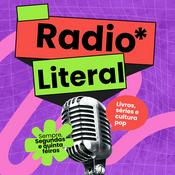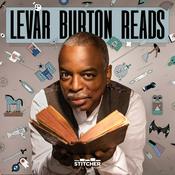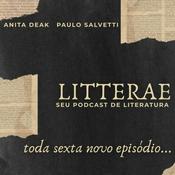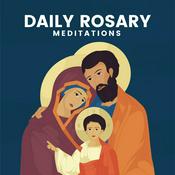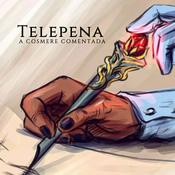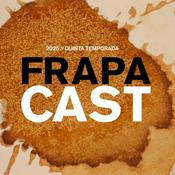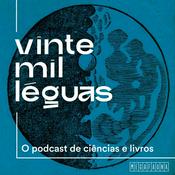123 episódios
- As we enter the season of elves and Christmas spirits, we follow up on our fairy theme from last episode with a look at the famous 16th-century German hausgeist, Hinzelmann the Kobold -- but don't call him that to his face!
Today's Texts:
Keightley, Thomas. The Fairy Mythology. E.G. Bohn, 1850. Google Books.
Der vielförmige Hintzelmann oder umbständliche und merckwürdige Erzehlung von einem Geist, so sich auf dem Hause Hudemühlen, und hernach zu Estrup im Lande Lüneburg unter vielfältigen Gestalten. Leipzig, 1704. Niedersächsische Staats- und Universitätsbibliothek Göttingen.
Grimm, Jacob, and Wilhelm Grimm. Deutsche Sagen. Berlin, 1816. Google Books.
00:00:00 Introduction
00:13:22 "Hinzelmann," translated by Thomas Keightley from the Brothers Grimm
00:48:03 Commentary
00:57:23 Mystery Word: kalamâr
00:58:52 2025 MDT Advent Calendar
01:02:33 Outro - For our eleventh anniversary episode, we follow the fairy path of the redcap, from recent cinema through tabletop gaming, into Victorian folklorists and Romantic balladeers, and finally hunting up their ancestry in medieval manuscripts.
Today's Texts:
"Redcap." Monster Manual III, edited by Greg Collins, John D. Rateliff, and Gary Sarli. Wizards of the Coast, 2004. Internet Archive, https://archive.org/details/monster-manual-iii/page/n137/mode/2up
Henderson, William. Notes on the Folk-Lore of the Northern Counties of England and the Borders. W. Satchell, Peyton, & Co., 1879. Internet Archive.
Leyden, John. "Lord Soulis." Minstrelsy of the Scottish Border, vol. 2, edited by Walter Scott, James Ballantyne, 1803, pp. 353-388. Google Books.
Leland, Charles Godfrey. "Etrusco-Roman Remains in Modern Tuscan Tradition." Congrès International des Traditions Populaires, Première Session, Paris 1889, Société d'Èditions Scientifiques, 1891. Google Books.
Gervase of Tilbury. Otia imperialia: Recreation for an Emperor. Edited and translated by S.E. Banks and J.W. Binns. Clarendon Press, 2002.
Thomas of Walsingham. Historia Anglicana. Edited by Henry Thomas Riley, vol. 1, Longman, Green, Longman, Roberts, and Green, 1863. Google Books.
Croker, Thomas Crofton. Fairy Legends and Traditions of the South of Ireland. 2nd ed., John Murray, 1838. Google Books. - This episode we continue further with Bede as he relates two more afterlife visions of a more infernal nature, and then we hear Gregory the Great answer some questions about the nature of Hell.
Today's Texts:
Bede. Ecclesiastical History. In The Complete Works of Venerable Bede. Edited and translated by J.A. Giles, vols. II & III, Whittaker and Co., 1843. Google Books.
Gregory the Great. Dialogues. Translated by P.W. (1608), edited by Edmund G. Gardner, Philip G. Warner, 1911. Digital transcription and additional editing by Roger Pearse, 2004, https://www.tertullian.org/fathers/index.htm#Gregory_Dialogues
Chapters
00:00:00 Introduction
00:02:34 Text: Bede's Historia Ecclesiastica, Ch. 13-14
00:10:53 Commentary
00:32:11 Text: from the Dialogues of Gregory the Great, Bk 4, Ch. 41-44
00:40:04 Commentary. cont.
00:40:35 Mystery Word: Jeffrey's-day
00:43:07 Outro - This episode we explore two glimpses of the afterlife presented by the Venerable Bede and consider how they relate to the modern conception of the near death experience.
Today's Text:
Bede. Ecclesiastical History. In The Complete Works of Venerable Bede. Edited and translated by J.A. Giles, vols. II & III, Whittaker and Co., 1843. Google Books.
Chapters
00:00:00 Introduction
00:12:37 Text: The Visions of Fursa from Bede's Historia Ecclesiastica
00:24:05 Commentary
00:29:59 Text: The Vision of Dryhthelm from Bede's Historia Ecclesiastica
00:43:34 Commentary. cont.
01:00:35 Riddle
01:02:09 Outro - This episode we finally enter the open ocean with the Uí Corra and their fellow pilgrims as they explore strange new lands, seek out new afterlives and new sects, and boldly go where many other saints and heroes of Irish legend have gone before.
Today's Texts
"The Voyage of the Hui Corra." Translated by Whitley Stokes. Revue Celtique, vol. 14, 1893, pp. 22-69. Internet Archive.
References
Breatnach, Caoimhín. "The Transmission and Structure of Immram Curaig Ua Corra." Ériu, vol. 53, 2003, pp. 91-107. JSTOR, www.jstor.org/stable/30008353
Dumville, David. "Echtrae and Immram: Some Problems of Definition." Ériu, vol. 27, 1976, pp. 73-94). JSTOR, www.jstor.org/stable/30007669
Mais podcasts de Arte
Podcasts em tendência em Arte
Sobre Medieval Death Trip
A podcast exploring the wit and weirdness of medieval texts
Site de podcastOuça Medieval Death Trip, Tantos Tempos Podcast e muitos outros podcasts de todo o mundo com o aplicativo o radio.net
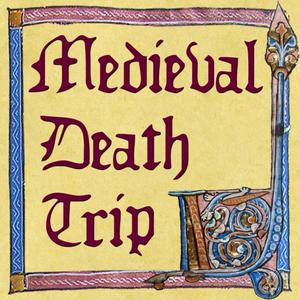
Obtenha o aplicativo gratuito radio.net
- Guardar rádios e podcasts favoritos
- Transmissão via Wi-Fi ou Bluetooth
- Carplay & Android Audo compatìvel
- E ainda mais funções
Obtenha o aplicativo gratuito radio.net
- Guardar rádios e podcasts favoritos
- Transmissão via Wi-Fi ou Bluetooth
- Carplay & Android Audo compatìvel
- E ainda mais funções


Medieval Death Trip
Leia o código,
baixe o aplicativo,
ouça.
baixe o aplicativo,
ouça.













